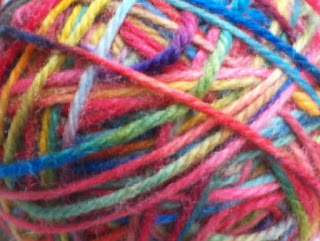photo by Leanne Dyck
There are tons of horror stories out there. I think they exist because we, writers, don't really understand what an editor does.
Authors Phyllis Smallman and Kay Stewart interviewed editors Lenore Hietkamp and Frances Thorsen (bookstore owner: Chronicles of Crime). Heitkamp and Thorsen answered questions like...
-How can I find the best editor?
-How can I work more effectively with an editor?
-What common errors do editors find and how can I avoid making them?
-What does an editor do?
Here's what I heard...
What does an editor do?
1)an editor reads your manuscript. While she's reading she's asking herself: What is this author trying to say? Is it working?
2)After reading your manuscript, the editor writes a report -- she points out what is working and what isn't.
3)The editor then has a discussion regarding the manuscript with the writer. The editor is okay with a writer disagreeing with her, but she wants to know why the writer disagrees.
4)Both the editor and the writer have a say as to what needs to be changed. Once this plan is finalized, the writer works on the changes. 5)The editor reviews the changes.
6)The editor gives the writer a final draft of the manuscript.
Two types of editing
Micro (line) editing: Is like looking through a microscope, the editor closely examines each sentence. She looks at sentence structure, grammar, spelling, punctuation, etc.
Macro (story) editing: Is like looking through a camera, the editor looks at the big picture. He looks at story structure, plot, pacing, dialogue, etc.
Author - Editor relationship
-should be built on mutual respect
-authors should receive feedback on what is and isn't working
-editors should respect the author's voice
How can I find an editor?
-by networking
-by type the editor's name into a search engine
-through professional organizations (not all editors belong to professional organizations and this has nothing to do with their professionalism)
How can I evaluate an editor's work?
-read book reviews of books the editor has worked on
-ask for a sample of the editor's work
Authors can help editors by providing them with a story bible
(The Story Bible: What It Is and Why You Need One by Jane Friedman)
Tip: a good way to tell if your story is working is to read the first three and last three chapters of your manuscript.
Common mistakes authors make
-introducing too many characters in the first few chapters
-not doing enough research
-repeating the same sentence throughout the book
-not putting the crime in the right place
-not reading the manuscript out loud or having someone else read it out loud and recording it
-the story isn't properly paced
Tip: you should have the reader on the edge of her seat; then let her breathe -- and repeat.
-too many consequences
-the story isn't properly plotted
-boring dialogue -- stick with what is important
Bottom line: The editor and author have the same goal in mind -- to produce the best book possible. Authors shouldn't be defensive. Look at your work with the editor as conversations about your book.
More: Why Edit?
This is a guest post written by Amy Haagsma on behalf of EAC-BC, the BC branch of the Editor's Association of Canada
Next post: Word Vancouver is so cool. There's workshops, panel discussions, author readings and so much more. I'll be attending this Saturday and Sunday. And I'm looking forward to telling you all about it.
Sharing my author journey...
September was an emotions packed month for me.
In writing...
I sent out more submissions this month than ever before -- 12 submissions. I also received a lot of rejection letters. In fact, one day I opened the mailbox and found seven. Let me write that again: s-e-v-e-n. It took my breath away and set me reeling, like a boxer receiving an upper cut.
Quote from one of the rejection letters...
'This story is very sweet, but I think it could use some elaboration.'
But I know acceptance is coming. All I have to do is keep writing, submitting and revising.
In my personal life...








